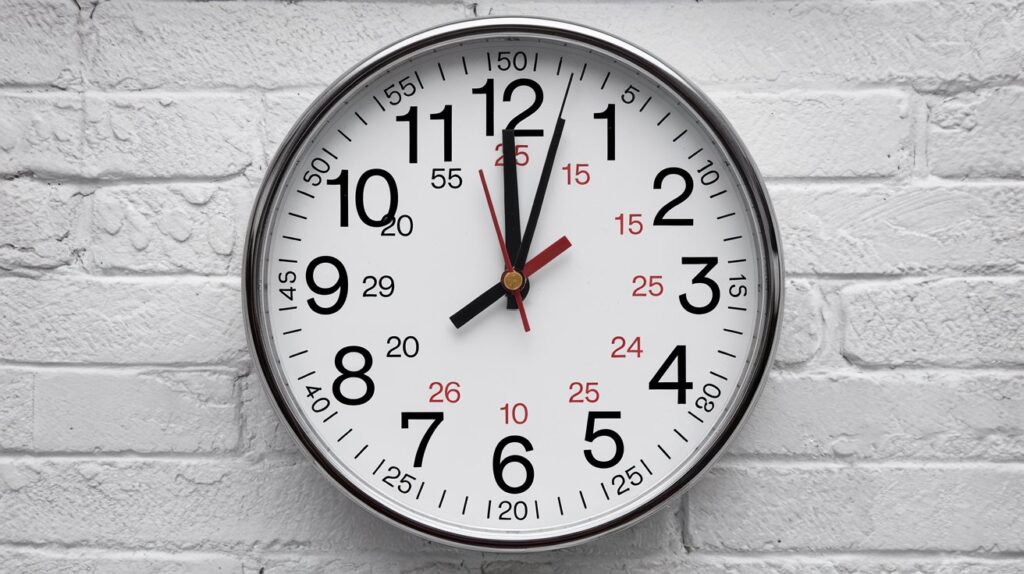How Long Is a Fortnight? Meaning, History & Modern-Day Use

Table of Contents
Introduction:
How long is a fortnight? A fortnight is a time unit that means 14 days or two weeks. People have been using this word for hundreds of years, but many still wonder what it really means and where it comes from.
In this blog, we will explain the meaning of a fortnight, where the word comes from, and how it is used today. You’ll also learn some interesting facts about how different countries use this word in daily life.
What Does “Fortnight” Mean? Simple Answer
A fortnight is a time unit that means 14 days or two weeks. This word is mostly used in the United Kingdom, Australia, and some other English-speaking countries. People often use it when talking about payments, holidays, or weather forecasts.
The word “fortnight” is not as common in the United States. In America, people usually say “two weeks” instead. But in some books, news, and history, you may still see or hear the word “fortnight.”
How Long Is a Fortnight in Days, Weeks & Hours?
A fortnight is exactly 14 days or two weeks. If we count the hours, a fortnight has 336 hours. This is because one day has 24 hours, so 24 × 14 = 336.
If we look at it in minutes, a fortnight has 20,160 minutes (336 × 60). That’s a big number! This simple math shows how long a fortnight is in different ways.
Where Did the Word “Fortnight” Come From? A Quick History
The word “fortnight” comes from Old English. It is a short form of “fourteen nights.” People in old times used to count time by nights, not days. That is why they said “fourteen nights” instead of “two weeks.”
This word has been in use for hundreds of years. Even today, many British and Australian people still use “fortnight” in daily conversations. It is an important part of the English language history.
How People Use the Word “Fortnight” in Different Countries

In British English, “fortnight” is a common word. People use it when talking about wages, school breaks, or travel plans. For example, someone might say, “I am going on holiday for a fortnight.”
In Australian English, it is also popular. Many jobs pay workers every fortnight instead of every week. If you live in Australia, you may hear “fortnightly payments” quite often.
In American English, “fortnight” is rare. Most people say “two weeks” instead. However, you may find it in old books, poems, or British TV shows.
Fortnight vs. Biweekly: What’s the Difference?
Many people get confused between “fortnight” and “biweekly.” The difference is simple:
- A fortnight is always 14 days or two weeks. It is clear and does not change.
- Biweekly can mean either every two weeks or twice a week. This can be confusing.
For example, if someone says, “I get paid biweekly,” they might mean every two weeks or twice a week. But if they say, “I get paid every fortnight,” it always means every 14 days.
Is “Fortnight” Still Used Today? Modern Usage Examples
Even though “fortnight” is an old word, it is still used today in many places. Here are some common ways people use it:
- Salary & Wages: Many jobs pay workers fortnightly, meaning every two weeks.
- Holidays & Travel: People often plan vacations for a fortnight.
- Weather Forecasts: In some places, weather predictions are made for the next fortnight.
Even though it is not as common in the U.S., it remains an important word in British and Australian English.
How Long Is a Fortnight in Different Cultures & Languages?
Different cultures use different words for a fortnight, but the meaning remains the same. Here are some examples:
- French: “Quinzaine” (meaning about 15 days)
- Spanish: “Quincena” (used for 15-day work schedules)
- German: “Vierzehn Tage” (which means 14 days)
Many languages have words for a fortnight, but some cultures do not use the concept at all. They simply say “two weeks.”
Fun Facts About “Fortnight” You Didn’t Know!
- The word “fortnight” was first recorded in the 11th century.
- In Shakespeare’s time, people used “fortnight” a lot in plays and writings.
- Some businesses use “fortnightly” to describe pay schedules and meetings.
Even though it is an old word, “fortnight” still finds its place in modern life!
How Fortnite (the Game) Got Its Name from “Fortnight”

Many people wonder if the game Fortnite is connected to “fortnight.” The answer is yes and no.
- Yes, because “Fortnite” sounds like “fortnight.”
- No, because the game is about building forts and surviving. The creators played with words to make “Fortnite” sound fun and unique.
Even though the game has no direct connection to the word “fortnight,” the name similarity has made more people curious about what a fortnight actually means.
Final Thoughts: Should You Use “Fortnight” in Daily Life?
“Fortnight” is a useful word, especially in British and Australian English. It is a clear way to say two weeks without confusion.
If you live in the United States, people might not understand it well. It is still fine to use, but saying “two weeks” might be better for clear communication.
In the end, knowing the word “fortnight” is helpful. Whether you use it or not, it is always good to understand its meaning and history!
FAQs
Q: How many days are in a fortnight?
A: A fortnight has 14 days, which is the same as two weeks.
Q: Why do people say “fortnight” instead of “two weeks”?
A: “Fortnight” is a traditional word used mostly in British and Australian English. It is shorter and easier to say than “two weeks.”
Q: Do people in the U.S. use the word “fortnight”?
A: Not often. In the United States, people usually say “two weeks” instead of “fortnight.”
Q: Is “fortnight” still used today?
A: Yes! Many people in the UK, Australia, and other English-speaking countries still use it, especially for pay schedules and holidays.
Q: What is the difference between fortnight and biweekly?
A: A fortnight is always 14 days. “Biweekly” can mean either every two weeks or twice a week, which can be confusing.




